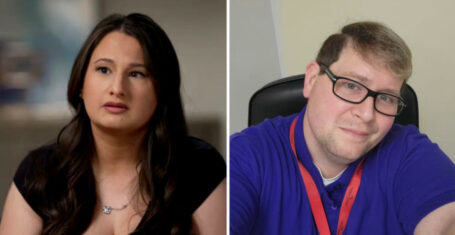
REVIEWED: The History Boys
You should have watched this show.
Unquestionably, the decision of presenting Alan Bennett’s “The History Boys” as a debut Durham Student Theatre performance was an intelligent manoeuvre from “Bad Seed Productions”.
It is “quantifiable” (in the words of ‘Headmaster’ himself) that Bennett’s immaculately rich verbal texture resonates with most Durham University students, as the play offers an effective exposé on the several different methods used to equip students for the most brilliant and prestigious educational establishments in the country. Several of us, like the playwright’s grammar school boys, were once Oxbridge candidates, galvanised by our all-too-keen teachers with the prospect of successfully showcasing our lustrous scholarly “coatings” at interviews.
Therefore, I was not surprised to see that “The History Boys” attracted large numbers to their second evening performance, ranging extensively from your avid theatre goers to thespian novices (I overheard one such novice asking if there was going to be a “half-time”). There was a long 30 minute delay for “curtains up”, which was a little aggravating, but it was obviously a direct consequence of the sheer amount of people trying to buy tickets and find seats in an already jam-packed Assembly Rooms.
Durham flocks to see the boys
I never doubted the overwhelming popularity of the play, but filling the mighty shoes of Richard Griffiths (to which the show is dedicated to), Frances de la Tour, and the other stellar cast members from the original London production, is an ambitious and hefty task that director Morten Jacobsen asked of his fellow actors. However, in retrospect, I feel safe in saying that the cast and crew satisfied almost every single expectation.
The ambience of a cluttered classroom, with mismatching chairs, disarrayed desks, and a jumble of notices on the flats, including the all-romantic “Gone With the Wind” film poster and a neat “Fire Escape” placard, perfectly typifies the realism of a Thacherite classroom in the 80’s. It also nicely parallels the electric and boisterous energy emanating from the ensemble of schoolboys caught in that interim period between post-A Level examinations and higher education, wherein studying, frolicking, (and, if I may dare say it, occasional “gobbet” references to groping) become routine.
A motley crew of talent
The clustered environment did create moments of awkward blocking, with some of the teachers occasionally eclipsing some of the boys’ hilarious facial reactions; however this did not substantially detract from the pervasive light bantering mood.
Particular comic highlights included the French scene, skilfully mastered by Will Hannam who wins everyone’s heart with Hector’s “eroticised” passion for learning, the hysterical melodramatic vignette with Xander Drury and Ed Cherrie acting out the 1942 film “Now Voyager”, and Sophia Harrop’s “nothing short from perfect” Mrs. Lintott as she recalls her “eventful” life as a Durham University student.
Callum Kenny also delivered a faultless performance as the emotional and vulnerable Posner, trying to come to terms with his unrequited love for Dakin and the cruel hardships of reality.
Charlie Warner nuanced Irwin’s pragmatism beautifully, grasping the character’s Eliotian “dissociation of sensibility” with vivid intensity, whilst simultaneously colouring it with the necessary soft undertones of a closeted homosexual. It was a shame that there were a few moments in the first act when Warner was inaudible, mostly when he turned his back to the audience for a long period of time or when he just spoke too quietly.
His phenomenal characterisation did not soar as much as it could have without properly resounding Bennett’s “poetry”. However, the second half was a complete turnaround for Warner, as he was able to interweave his crisp characterisation with effective delivery, allowing him to easily become one of the highlights towards the end of the play.
Charlie Warner (centre) was the star of the show
In fact, the denouement in general proved to be the most poignant and moving moment, shadowing, in highly effective blue and white washes, what happens to each and every single Oxbridge candidate onstage. It was nothing short of electrifying.
“The History Boys” is an incredibly successful piece of theatre and deserves nothing less than wide acclaim from its spectators. The outstanding cast and Jacobsen’s immaculate direction make me want to fulfil Hector’s prophetic message: pass the “message” on.









































